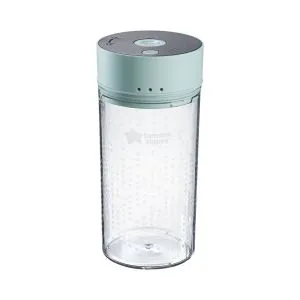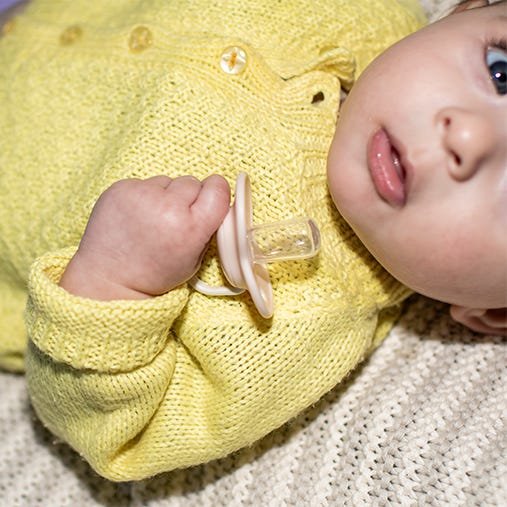What is considered constipation in newborns?
If you notice any of the symptoms we covered earlier – such as having trouble pooping or doing less than three bowel movements in a week – it's possible that your baby may be constipated.
How to relieve constipation in newborns
Although being constipated can be uncomfortable for babies, there are several things that parents can do to help their little one get back to pooping regularly.
Massage them
If your baby is experiencing constipation, gently massaging their tummy in a clockwise direction can help stimulate bowel movements.
Make sure that your hands are clean and warm, then lay your baby on their back and gently rub their tummy. You can also try gently bending their knees towards their chest and holding for a few seconds before releasing. This can help to relieve gas and stimulate bowel movements. It's important to be gentle and not apply too much pressure as babies are delicate and their tummies are sensitive.
Move their legs
Gently moving a baby's legs back and forth in a cycling motion while they lie on their back – a technique known as "bicycling" – can help relieve trapped gas, alleviate discomfort, and hopefully make it easier for your baby to poop if they're constipated.
Give them a bath
A relaxing warm bath can give a baby relief from stomach pains and make it easier for them to poop.
What can you give newborns for constipation?
You shouldn’t give your baby laxatives to treat constipation unless they've been recommended and prescribed by a GP. The most effective way to prevent constipation is to ensure that your baby is receiving sufficient fluids from their breast milk or formula feeds.
What causes newborn constipation?
Diet changes
Some babies experience constipation if they transition from breast milk to infant formula, although this should resolve once their body adapts to their new diet. If their baby is formula-fed, parents should always adhere to the manufacturer's instructions closely to avoid constipation.
If they're breastfed, changes in their parent’s diet can sometimes impact a baby's bowel movements.
Dehydration
Parents should keep a close eye on their baby’s fluid intake to avoid dehydration because a lack of fluids can make a baby's poo harder and more difficult to push out, and this can lead to constipation.
When to see a doctor for newborn constipation
As with all aspects of baby healthcare, you should always trust your parenting instinct if you're concerned that your baby may be constipated, and you should speak to your medical care team as soon as possible if your baby:
- hasn’t passed any meconium 48 hours after birth
- is losing weight
- appears particularly fatigued
- has blood in their poop










